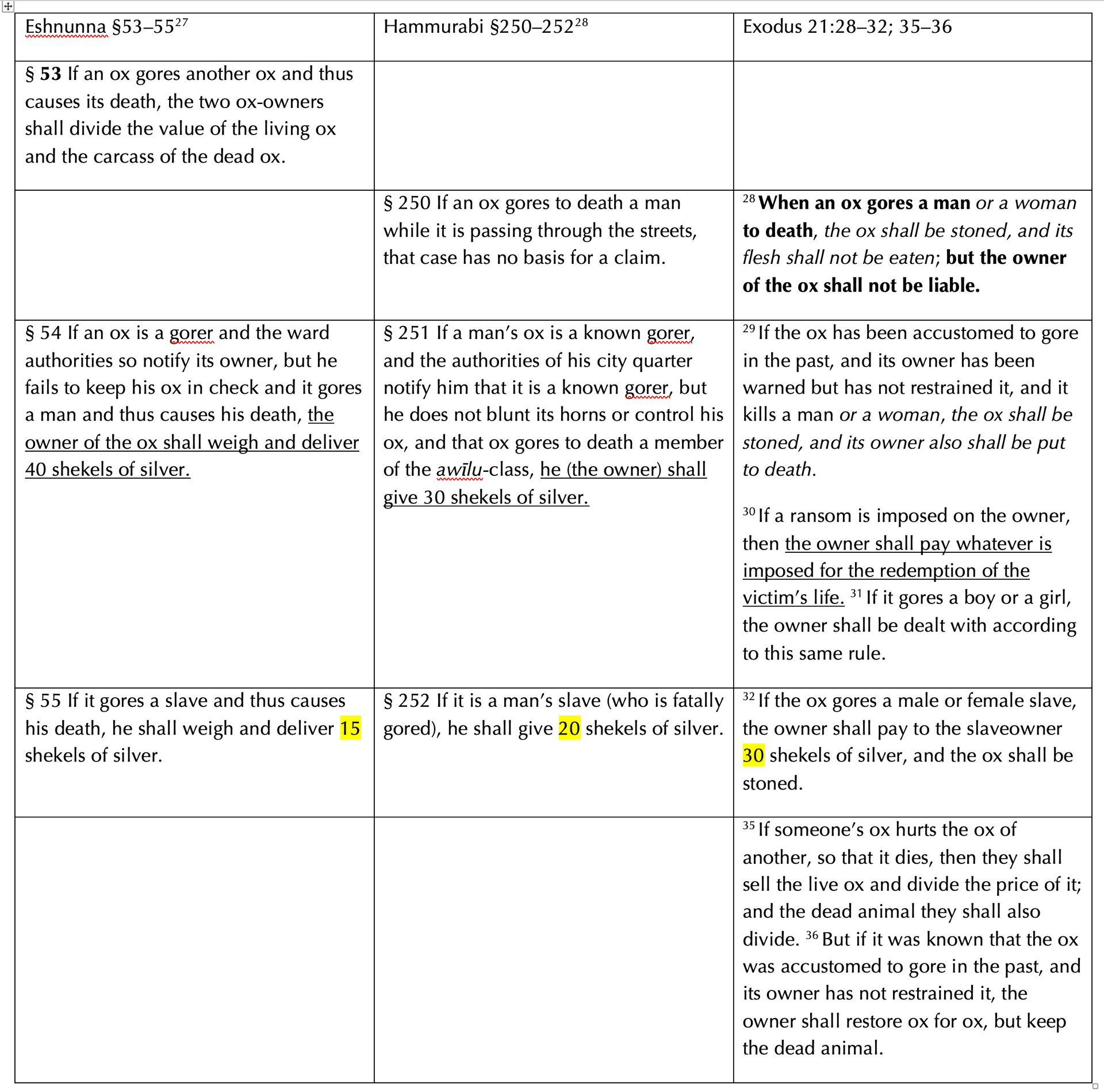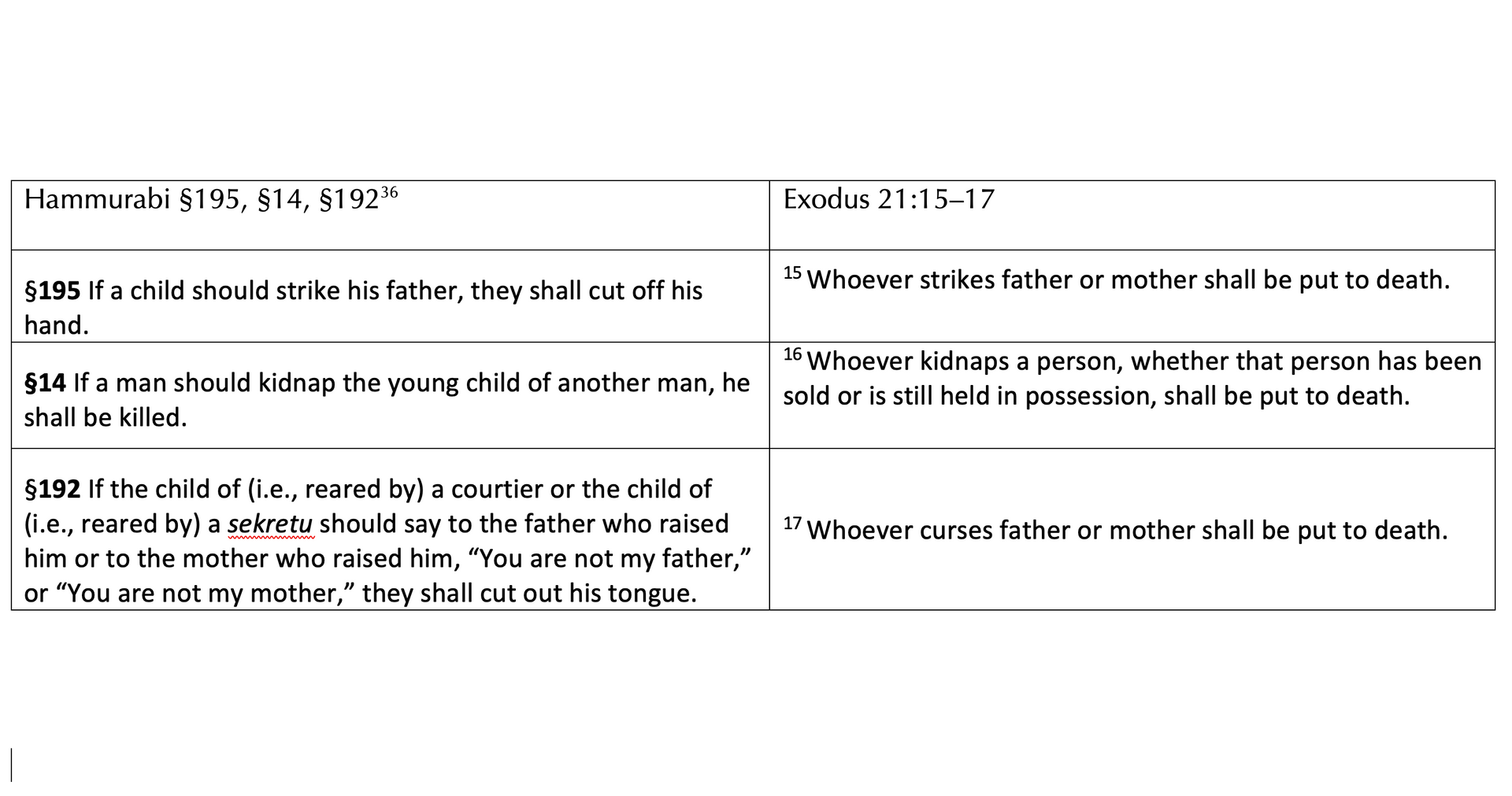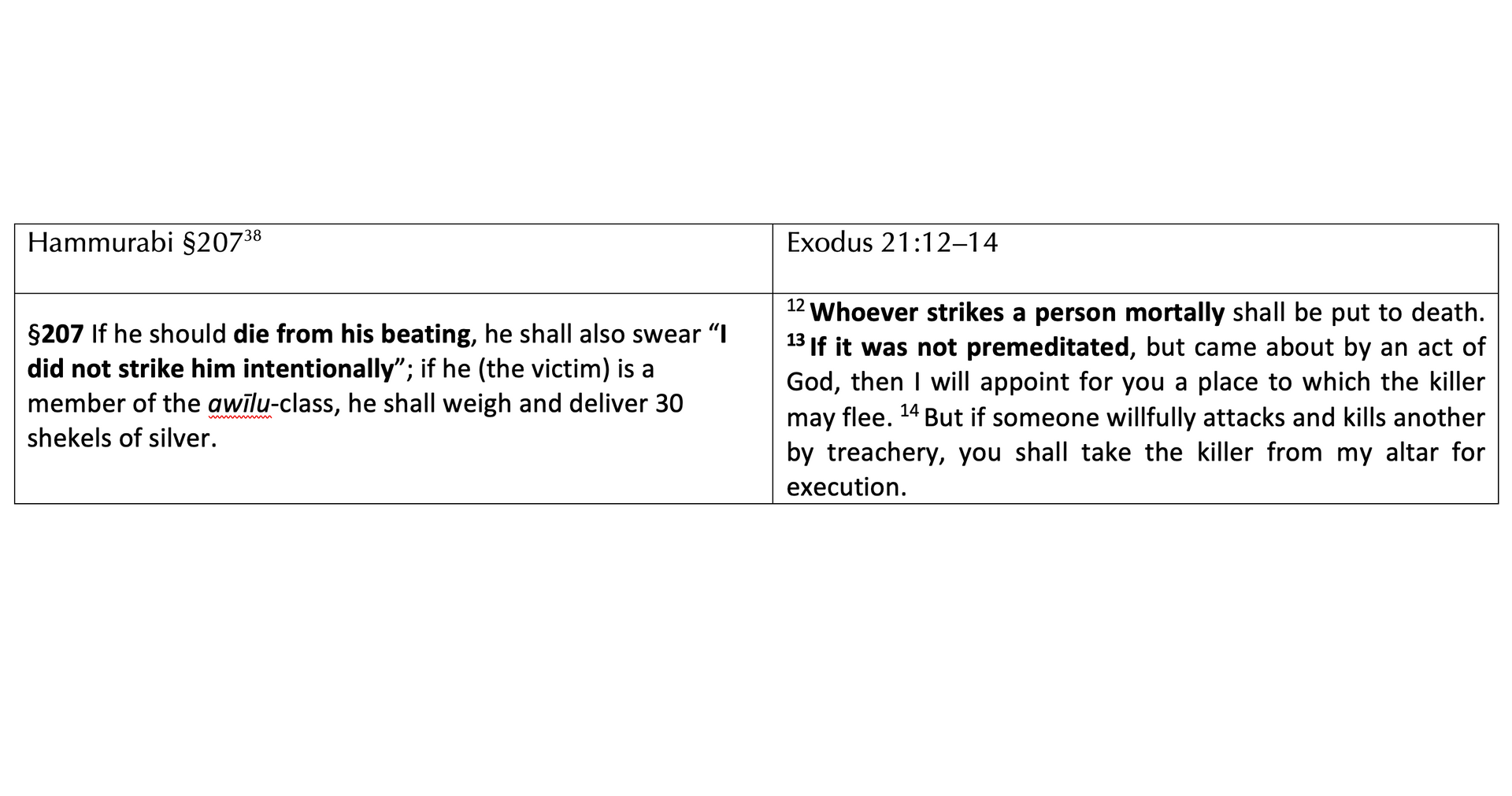Biblical Law and the Ancient Near East
The Torah presents the law as being given to/by Moses throughout Exodus, Leviticus, Numbers, and Deuteronomy, but scholars have long seen that the law developed in a much different way. It builds on Ancient Near Eastern models and even borrows laws wholesale. And then the Bible rewrites itself - giving us 3 different law codes. Below are resources for the study of the development of the law.
Biblical Law Part 1: The 3 Law Codes of the Bible
Any discussion of the law in the Hebrew Bible should begin by defining what exactly the law is. The answer to this question is like many other things dependent on what perspective we take. Scholars broadly agree that the laws we find in the Torah are the result of several different processes and can’t be traced to a single giving of the law. On the one hand, many laws are connected to earlier Ancient Near Eastern sources (this will be discussed more broadly in Part 2). The law codes themselves also seem to be formed in analogy with treaties between Suzerain and Vassal (strong and weak nations) in the Ancient Near East (this is the topic of part 3). Scholars are also in broad agreement about the fact that there are three different collections of laws represented in the text of the Torah, and that these have different social and historical settings. There are many laws that illustrate this, but the festival calendar—the regulations concerning the holidays of ancient Israel—is in my opinion the best example. Thus, the video above goes through the development of the laws of the festivals as they develop from Exodus 23 to Deuteronomy 16 to Leviticus 23.
General Resources:
The 3 law codes are the Covenant Code in Exodus 20–23, the Holiness Code in Leviticus 17–26 (part of the Levitical Code which spans basically all of Leviticus and Numbers), and the Deuteronomic Code in Deuteronomy 12–26. Good Historical commentaries will show the links between these law codes and can be consulted.
- Frank Crüsemann’s book The Torah from 1996 is still a major resource when it comes to the order and development of the law codes.
- Joel Baden also discusses the law in relation to the Documentary Hypothesis in his The Composition of the Pentateuch
Here is the parallel text of the 10 commandments:
Deuteronomy:
6 I am the Lord your God, who brought you out of the land of Egypt, out of the house of slavery; 7 you shall have no other gods before me.
8 You shall not make for yourself an idol, whether in the form of anything that is in heaven above, or that is on the earth beneath, or that is in the water under the earth. 9 You shall not bow down to them or worship them; for I the Lord your God am a jealous God, punishing children for the iniquity of parents, to the third and fourth generation of those who reject me, 10 but showing steadfast love to the thousandth generation of those who love me and keep my commandments.
11 You shall not make wrongful use of the name of the Lord your God, for the Lord will not acquit anyone who misuses his name.
12 Observe the sabbath day and keep it holy, as the Lord your God commanded you. 13 Six days you shall labor and do all your work. 14 But the seventh day is a sabbath to the Lord your God; you shall not do any work—you, or your son or your daughter, or your male or female slave, or your ox or your donkey, or any of your livestock, or the resident alien in your towns, so that your male and female slave may rest as well as you.
15 Remember that you were a slave in the land of Egypt, and the Lord your God brought you out from there with a mighty hand and an outstretched arm; therefore the Lord your God commanded you to keep the sabbath day.
16 Honor your father and your mother, as the Lord your God commanded you, so that your days may be long and that it may go well with you in the land that the Lord your God is giving you.
17 You shall not murder.
18 Neither shall you commit adultery.
19 Neither shall you steal.
20 Neither shall you bear false witness against your neighbor.
Exodus:
I am the Lord your God, who brought you out of the land of Egypt, out of the house of slavery; 3 you shall have no other gods before me.
4 You shall not make for yourself an idol, whether in the form of anything that is in heaven above, or that is on the earth beneath, or that is in the water under the earth. 5 You shall not bow down to them or worship them; for I the Lord your God am a jealous God, punishing children for the iniquity of parents, to the third and fourth generation of those who reject me, 6 but showing steadfast love to the thousandth generation of those who love me and keep my commandments.
7 You shall not make wrongful use of the name of the Lord your God, for the Lord will not acquit anyone who misuses his name.
8 Remember the sabbath day, and keep it holy. 9 Six days you shall labor and do all your work. 10 But the seventh day is a sabbath to the Lord your God; you shall not do any work—you, your son or your daughter, your male or female slave, your livestock, or the alien resident in your towns.
11 For in six days the Lord made heaven and earth, the sea, and all that is in them, but rested the seventh day; therefore the Lord blessed the sabbath day and consecrated it.
12 Honor your father and your mother, so that your days may be long in the land that the Lord your God is giving you.
13 You shall not murder
14 You shall not commit adultery.
15 You shall not steal.
16 You shall not bear false witness against your neighbor.
17 You shall not covet your neighbor’s house; you shall not covet your neighbor’s wife, or male or female slave, or ox, or donkey, or anything that belongs to your neighbor.
Biblical Law Part 2: The Code of Hammurabi
The second part of this series is about the earlier laws that made their way into the Hebrew Bible. Most notably, the Code of Hammurabi from the 18th Century BCE has very likely contributed to the composition of the Covenant Code in Exodus. There are some very clear parallels in terms of content, semantics, style, and even structure that show that the laws in Exodus do not randomly appear as they do, in the order they do, but are part of an Israelite rewriting of Hammurabi. Below are some of the parallels that I go through in the video and links to some resources.
General Resources:
And here is my MA thesis from many moons ago. I wouldn't write it the same now - but I think some of the discussion was worthwhile anyway. And since it is out there open access I may as well let y’all see it.
Here are some of the parallels:




Biblical Law Part 3: Deuteronomy and the Hittite Treaties
The final part of this series looks at the way the book of Deuteronomy is structured according to the form of the ancient Hittite Suzerain - Vassal Treaties. These treaties have been found in abundant numbers in both Hittite and Akkadian versions, and show how stronger states forced weaker ones to submit to treaties that governed the relationship between the two.
General Resources:
The 3 law codes are the Covenant Code in Exodus 20–23, the Holiness Code in Leviticus 17–26 (part of the Levitical Code which spans basically all of Leviticus and Numbers), and the Deuteronomic Code in Deuteronomy 12–26. Good Historical commentaries will show the links between these law codes and can be consulted.



